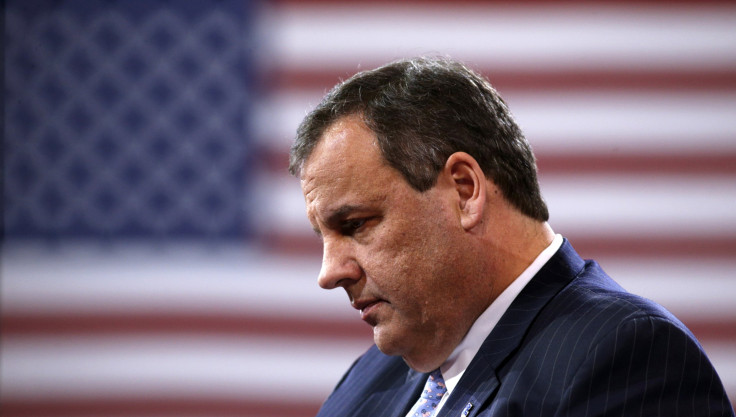Chris Christie Poll: NJ Governor's Approval Rating At All-Time Low, New Numbers Show

New Jersey Gov. Chris Christie's approval rating in his home state is at an all-time low as he considers whether to get into the 2016 presidential race. The embattled New Jersey governor has faced criticism over so-called "Bridgegate," a broken pension system and what some detractors say is a bullying personality.
More than half of New Jersey voters disapprove of Christie's performance as governor while only 35 percent approve, according to a Fairleigh Dickinson University PublicMind survey released Tuesday and cited by Politico. Christie's approval is on a downtrend; in a January poll, 39 percent of New Jersey voters said they approve of his performance as governor while 47 percent disapproved.
The poll was released about a week after Christie delivered his budget address that included reforms to public pensions and benefits to public employees, according to the Associated Press. But the address did not positively impact his poll numbers, according to Politico. The Fairleigh Dickinson poll also found that 52 percent of New Jersey voters think the state is on the wrong track while 33 percent believe the state is going in the right direction.
While Christie's management of New Jersey may be unpopular, voters are mixed on their personal feelings toward the governor. A plurality of voters -- 35 percent -- said they hate everything about Christie, 8 percent said they dislike him personally but like his policies, 29 percent said they love everything about him and 21 percent said they like Christie personally but not his policies, according to Politico.
Christie is among a dozen possible 2016 presidential contenders on the Republican side. The governor addressed the Conservative Political Action Conference, or CPAC, last week, but didn't fare too well in the confab's straw poll. Christie came in 10th place in the straw poll, which was won for the third consecutive year by U.S. Sen. Rand Paul, R-Kentucky.
© Copyright IBTimes 2025. All rights reserved.






















